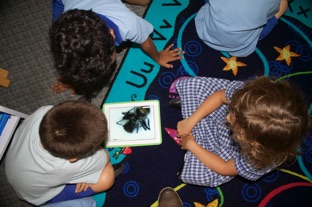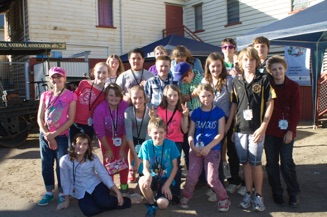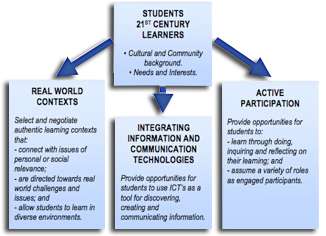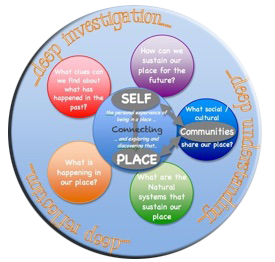The Brisbane Urban Environmental Education Centre is committed to supporting schools in implementing the Australian National Curriculum – specifically in the areas of Science, History and Geography.


In 2006 Education Queensland accepted the following recommendation -
“All students within Queensland be educated to be active and informed citizens, aware of the rights and obligations of citizenship, as well as being capable of creating and participating in a future sustainable society”
(Queensland Government, MACER recommendation 1: Nov, 2008)


The Brisbane Urban Environmental Education Centre designs programs that are based on the ‘Teaching the 21st Century Learner’ model which forms part of the Education Queensland’s ‘Tomorrow’s Citizens’ resource. Digital pedagogy is an integral element to most of the programs offered at Brisbane Urban Environmental Education Centre. The students learning is enhanced through the use of digital resources such as iPads, ProScope Microscopes, and digital cameras.
The programs developed by the Centre have links to the Productive Pedagogies framework (also including the 5th pedagogy – Experience – Based Learning), the ‘Five E’s planning model from the Primary Connections materials and the Tomorrow’s Citizens Framework.
The Brisbane Urban Environmental Education Centre supports students learning through
- Specialised field investigation programs in city and suburban locations that relate to the social and built environment, and natural systems and resources.
- Centre based activities in the Education for Sustainability Learning Centre that enable students to explore, investigate and develop deeper understandings and experience of some of the key issues (particularly energy efficiency) relating to living sustainably in an urban setting.
- Developing partnerships with schools to assist with planning and implementing school sustainability initiatives.
- The Brisbane Show Camp: a specialised residential program run in partnership with the Royal Brisbane Show (EKKA) for upper Primary students to use the experiences of the EKKA as the basis for media and journalism projects.
- Providing expert support to teachers and schools developing and implementing urban or sustainability based environmental investigations.